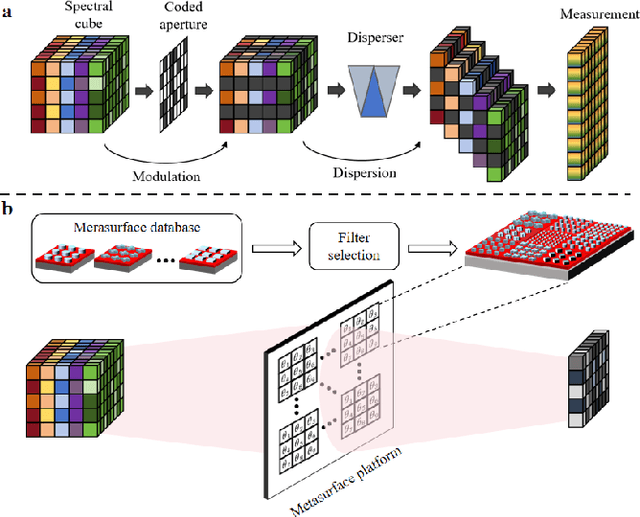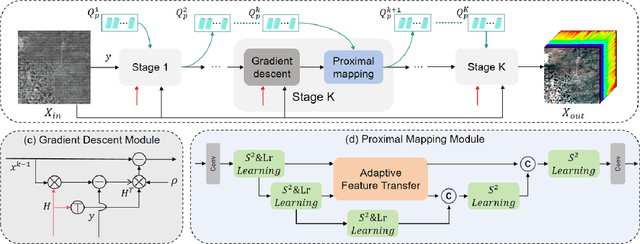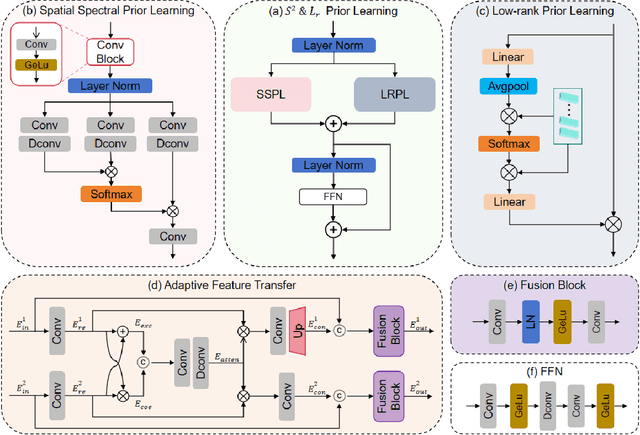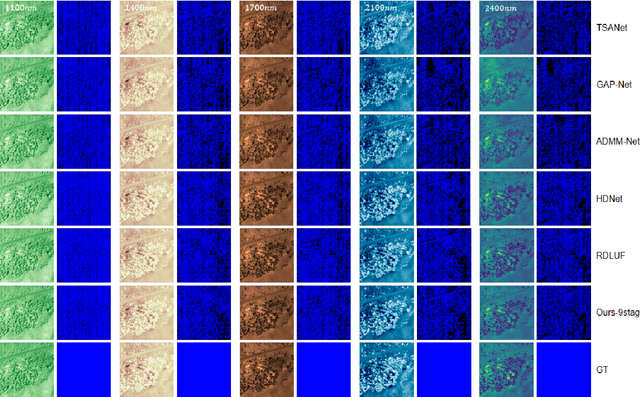Jinglei Hao
Metasurface-based Snapshot Shortwave-Infrared Hyperspectral Image Reconstruction with Inter and Intra Prior Learning Network
Jul 11, 2024



Abstract:Shortwave-infrared(SWIR) spectral information,ranging from 1 {\mu}m to 2.5{\mu}m, breaks the limitations of traditional color cameras in acquiring scene information and has been used in many fields. However, conventional SWIR hyperspectral imaging systems face challenges due to their bulky setups and low acquisition speed. In this work, we introduce a snapshot SWIR hyperspectral imaging system based on a metasurface filter and a corresponding filter selection method to achieve the lowest correlation coefficient among these filters.This systemhas the advantages of small size and snapshot imaging. We propose a novel inter and intra prior learning unfolding framework proposed to achieve high-quality SWIR hyperspectral image reconstruction, which bridges the gap between prior learning and cross-stage information interaction. We also design an adaptive feature transfer mechanism to adaptively the transfer contextual correlation of multi-scale encoder features to prevent detailed information loss in the decoder. Experiment results demonstrate that our method can reconstruct HSI with high speed and superior performance over existing methods.
Multi-granularity Backprojection Transformer for Remote Sensing Image Super-Resolution
Oct 19, 2023Abstract:Backprojection networks have achieved promising super-resolution performance for nature images but not well be explored in the remote sensing image super-resolution (RSISR) field due to the high computation costs. In this paper, we propose a Multi-granularity Backprojection Transformer termed MBT for RSISR. MBT incorporates the backprojection learning strategy into a Transformer framework. It consists of Scale-aware Backprojection-based Transformer Layers (SPTLs) for scale-aware low-resolution feature learning and Context-aware Backprojection-based Transformer Blocks (CPTBs) for hierarchical feature learning. A backprojection-based reconstruction module (PRM) is also introduced to enhance the hierarchical features for image reconstruction. MBT stands out by efficiently learning low-resolution features without excessive modules for high-resolution processing, resulting in lower computational resources. Experiment results on UCMerced and AID datasets demonstrate that MBT obtains state-of-the-art results compared to other leading methods.
 Add to Chrome
Add to Chrome Add to Firefox
Add to Firefox Add to Edge
Add to Edge